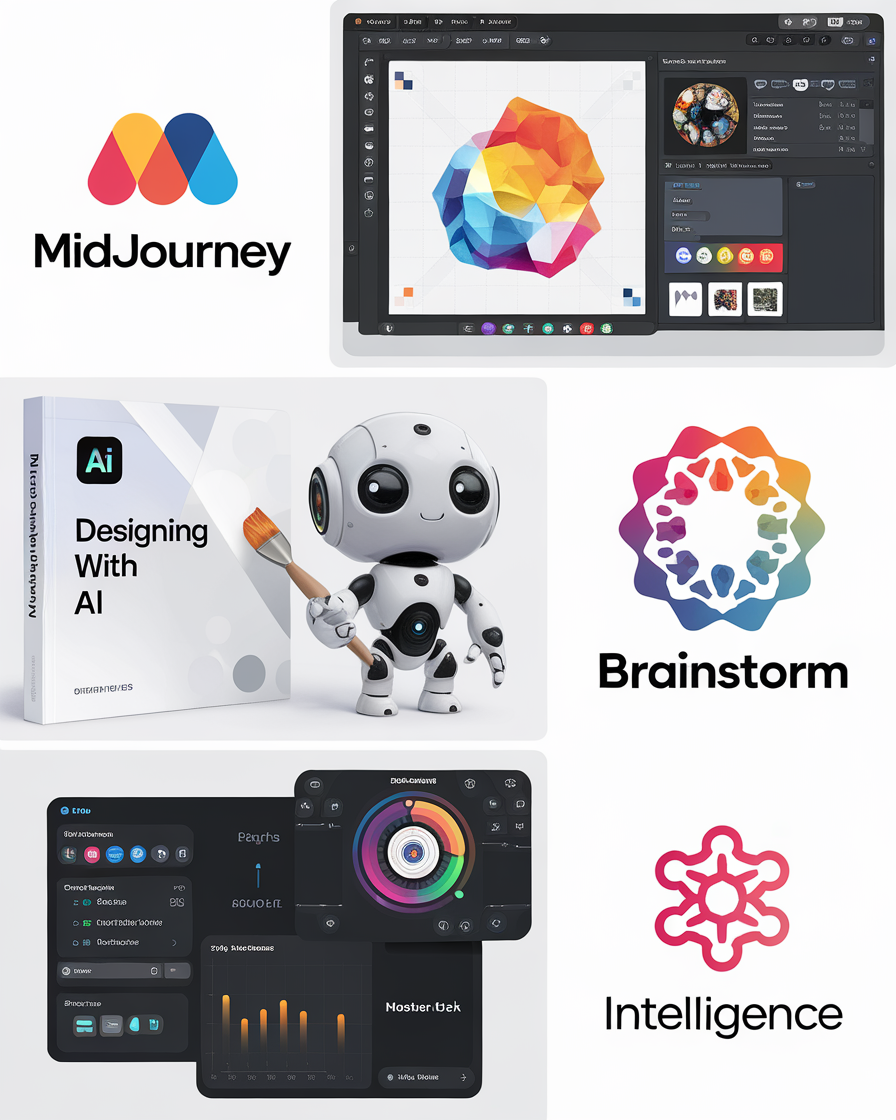What Is AI? How It’s Revolutionizing Financial Freedom — this question is not only timely but absolutely delicious in the possibilities it serves up. Imagine a world where your money works for you, where intelligent machines help you save, invest, and even plan for your dream vacation or retirement—all while you sleep. Sounds like sci-fi? Think again.
Let’s start with a quick story about this page and why it exists. We’re passionate about showing you how technology can change lives. And artificial intelligence—yes, that buzzword everyone’s talking about—isn’t just about robots or fancy algorithms. It’s about freedom. Financial freedom. Whether you’re just managing your budget or growing a full-blown investment portfolio, AI is now your co-pilot.
In this article, we’ll explore what AI really is, how it’s transforming financial services, and more importantly, how it can help you gain control over your finances. We’ll also answer key questions like:
- How is AI revolutionizing finance?
- What is AI revolutionizing?
- Why is AI artificial intelligence revolutionizing financial services?
- How can AI help with finances?
But that’s not all. We’ll dive into real-world applications, the risks and rewards, and even peek into the not-so-distant future of AI in finance. From smarter banking to budget-tracking bots, this is your go-to guide to unlocking financial freedom with the help of AI.
Let’s jump into the outline so you know what’s cooking in this delicious financial feast.
What Is AI? A Clear Definition
Artificial Intelligence, commonly known as AI, refers to the simulation of human intelligence in machines. These intelligent systems are designed to think, learn, and act like humans—but at scale and speed no human could match. Think of AI as your super-efficient assistant that never sleeps and never forgets.
AI includes technologies like machine learning, neural networks, natural language processing, and more. These components allow systems to analyze massive amounts of data, recognize patterns, make decisions, and even improve themselves over time. It’s not just about smart robots; it’s about transforming how information is processed.
In finance, AI is used for tasks like fraud detection, trading, credit risk assessment, and customer service. And what makes AI deliciously different from traditional software? It learns. The more data you give it, the smarter it gets.
You’ve probably already encountered AI without even realizing it. Every time your banking app suggests saving tips or your investment platform gives recommendations, that’s AI quietly working behind the scenes.
Why Is AI Revolutionizing Finance?
Finance is built on numbers, patterns, and predictions. That’s AI’s playground.
Let’s break it down. Traditional financial processes are often slow, manual, and full of friction. Think of how long it takes to apply for a loan, get investment advice, or manage your budget. Now, imagine AI jumping in to streamline, speed up, and enhance these processes. That’s the revolution in action.
Here’s how it is transforming finance at its core:
- Speed and Efficiency: AI-powered systems process data in real-time, meaning faster decision-making and quicker responses for customers.
- Personalization: From banking offers to investment portfolios, AI tailors services based on your behavior and goals.
- Risk Management: AI can predict risks before they happen—like catching a fraudulent transaction in seconds.
- Cost Savings: Automation cuts down on manual labor, reducing operational costs for institutions and consumers alike.
AI is not just a tool—it’s a catalyst. It’s why major financial institutions and startups alike are racing to integrate AI into every corner of their business.
AI in Banking and Payments
Banks are becoming smarter, and we owe much of that transformation to AI.
Key ways AI is reshaping banking:
- Chatbots and Virtual Assistants: AI-driven chatbots like Erica (Bank of America) or Eno (Capital One) are available 24/7, answering questions, checking balances, and even alerting users about suspicious activity.
- Fraud Detection: Machine learning models can identify unusual patterns in real-time, flagging and stopping fraud faster than any human could.
- Transaction Categorization: AI systems auto-categorize your spending into useful labels like groceries, travel, or bills—making budgeting far easier.
- Voice and Biometric Authentication: Security has leveled up, with AI using your voice or facial recognition to confirm identity.
Behind every smooth transaction or rapid loan approval, AI is the unsung hero making it all happen.
AI in Investment and Wealth Management

Investment used to be a game for the elite. Not anymore.
Here’s how AI democratizes wealth building:
- Robo-Advisors: Platforms like Betterment and Wealthfront use AI to assess your risk tolerance and financial goals to build personalized investment strategies—no human advisor needed.
- Algorithmic Trading: AI systems analyze market data, detect patterns, and execute trades in milliseconds. This gives firms a competitive edge in high-frequency trading.
- Portfolio Optimization: AI helps rebalance your investment mix regularly, ensuring alignment with your goals as markets shift.
By removing emotion and bias from investing, AI makes wealth management more efficient, affordable, and accessible.
AI in Credit Scoring and Lending
Traditional credit scoring systems often rely on outdated models that can exclude people with limited credit history. AI offers a smarter solution.
Game-changing innovations include:
- Alternative Data Analysis: AI considers more than just your credit score. It looks at rent payments, mobile usage, or even social media behavior to build a fuller picture.
- Automated Underwriting: Loan approvals, once done manually, are now powered by AI models that analyze thousands of data points in minutes.
- Fairer Decisions: With better insights, AI can reduce bias in lending—helping underserved communities get access to credit.
In short, AI is making lending faster, smarter, and more inclusive.
How Can AI Help With Finances?
Let’s face it—managing money can be a headache. But with AI, it doesn’t have to be.
Artificial Intelligence brings automation, prediction, and personalization to your fingertips. Whether you’re trying to stick to a budget, plan for retirement, or just understand where your money goes, AI has a solution. It’s like having a financial advisor, accountant, and planner all rolled into one… and it works 24/7.
Everyday benefits of AI in personal finance include:
- Spending insights: AI analyzes your transactions and tells you exactly where your money goes.
- Smart savings: AI identifies opportunities to save based on your spending habits.
- Debt management: AI suggests payment strategies to reduce interest and get you debt-free faster.
- Goal setting: Want to buy a house or travel the world? AI helps you budget and track progress toward your goals.
This is how AI is revolutionizing financial freedom—by putting powerful tools in your hands.
AI-Powered Budgeting & Expense Tracking
Gone are the days of clunky spreadsheets.
Today’s top AI-powered tools include:
- Mint: Uses AI to analyze spending, suggest budgets, and offer personalized money tips.
- Cleo: A chatbot that uses humor and AI to help users track spending and even roast them into better financial habits.
- Emma: An AI budgeting app that identifies wasteful subscriptions and suggests savings.
These apps learn from your financial behavior, making it easier to form good habits and cut unnecessary costs. They’re not just tracking—they’re coaching.
Imagine this: You grab lunch every day for $15. Your AI assistant alerts you, “That’s $300 a month in lunches. Want to try meal prep this week?” That’s AI helping you grow financially—without judgment.
AI in Tax Planning & Insurance Services
Taxes and insurance—two of the least fun parts of adulting. Thankfully, AI is here to help.
Here’s how:
- AI tax advisors: Platforms like TurboTax use AI to guide users through filing, spotting deductions and credits that traditional tools might miss.
- Predictive risk analysis: InsurTech startups are leveraging AI to forecast potential claims, helping insurers set fairer premiums.
- Claims automation: Filing a claim used to take days; now, AI tools can process claims in minutes based on photo uploads or chat interactions.
Even more impressive? Some insurance apps now use AI to proactively suggest better coverage or lower-cost options based on your usage—saving you time and money.
What Is AI Revolutionizing? Broader Impact
AI isn’t just transforming personal finance—it’s shaking up the entire economy.
Beyond banking and insurance, AI is redefining how we work, shop, invest, and grow. It’s changing how companies make decisions, how governments manage public funds, and how people achieve financial independence.
Some major revolutions in progress:
- Retail and E-commerce: AI powers dynamic pricing and personalized product suggestions.
- Healthcare finance: AI optimizes billing and insurance claims.
- Real estate investing: AI tools predict property value trends and rental ROI.
- Education loans and planning: AI recommends affordable schooling options based on long-term income forecasts.
The common thread? Smarter choices, driven by data.
AI for Small Businesses and Entrepreneurs
If you’re a small business owner or freelancer, AI is your secret weapon.
Here’s what it can do:
- Cash flow forecasting: AI can predict when you’ll run low on funds and alert you in advance.
- Invoice management: Tools like QuickBooks use AI to automate invoicing, track payments, and send reminders.
- Customer insights: AI analyzes your sales data to find trends, helping you refine your offers and boost profits.
AI levels the playing field, letting small businesses compete with giants by giving them tools once reserved for large corporations.
AI for Financial Inclusion
One of the most beautiful things AI is doing? Helping people who’ve been left out of the traditional financial system.
AI is opening doors for:
- Underserved populations: By analyzing non-traditional data, AI can assess creditworthiness for people with no credit history.
- Micro-loans: AI helps organizations deliver small, fast loans to people in remote or developing regions.
- Language barriers: Multilingual AI assistants allow users to access financial tools in their native languages.
- Education tools: AI-driven financial literacy apps teach budgeting and saving in engaging, personalized ways.
This isn’t just about money—it’s about dignity, opportunity, and access. AI is helping bridge the gap.
Risks & Challenges of AI in Finance

Now, while AI brings a truckload of benefits to finance, it’s not without its baggage. The journey to AI-powered financial freedom comes with real risks and ethical questions we can’t ignore.
We’re talking about things like bias, data breaches, and an ever-shifting regulatory environment. If these issues aren’t handled properly, the same tech that helps millions could potentially harm others or erode trust.
Let’s break these concerns down and see what needs to be done to keep the revolution fair and safe.
Ethical & Data Bias Concerns

One of the biggest challenges with AI in finance? Bias.
Why it matters:
AI systems are trained on historical data. If that data includes past discrimination—say, biased loan approvals or unfair insurance pricing—those patterns can creep into AI’s decision-making.
For example, if a past dataset favored urban clients over rural ones, an AI model might unknowingly do the same when assessing risk. This can worsen inequality, not reduce it.
What’s the solution?
- Transparent algorithms: Developers must build models that are explainable and auditable.
- Bias testing: Regular assessments to detect and remove discriminatory outcomes.
- Inclusive training data: Datasets should reflect the diversity of users they serve.
Without ethical oversight, AI could lose the trust it’s working so hard to build.
Cybersecurity & Privacy
With great power comes great responsibility—and with great data comes major risks.
AI systems process massive amounts of sensitive information: bank balances, purchase histories, even biometrics. That makes them juicy targets for cybercriminals.
Key risks include:
- Data breaches: Hackers may exploit vulnerabilities in AI systems to steal customer data.
- Adversarial attacks: Hackers can trick AI models with manipulated inputs, like fraudulent images or fake ID scans.
- Over-surveillance: Some financial AI tools may cross privacy lines by tracking user behavior too aggressively.
How to protect against it:
- End-to-end encryption
- Regular vulnerability testing
- Strict compliance with privacy laws (like GDPR and CCPA)
Protecting privacy is essential if we want users to trust AI with their financial lives.
Regulatory & Compliance Landscape
Regulation is still catching up with the pace of AI innovation.
Governments and financial watchdogs are scrambling to create rules that keep AI safe and fair without stifling innovation. It’s a tricky balance.
Key challenges regulators face:
- Defining liability: Who’s responsible when an AI system makes a mistake?
- Ensuring fairness: How do you verify that AI decisions are non-discriminatory?
- Cross-border compliance: AI systems that operate globally must comply with dozens of regional regulations.
What’s happening now:
- The EU’s AI Act aims to classify AI systems based on risk and set strict rules for high-risk applications like finance.
- In the U.S., the SEC and CFPB are starting to investigate how AI affects lending and investing.
As the rules evolve, companies must stay agile and proactive to avoid future fines and scandals.
Conclusion

Artificial Intelligence is no longer a futuristic fantasy—it’s here, and it’s changing the financial game in every way imaginable. From helping you save on daily expenses to managing billion-dollar portfolios, AI is reshaping how we interact with money.
What makes this revolution truly delicious? It’s not just for the tech-savvy or the wealthy. Anyone, anywhere, can tap into AI’s power to take control of their financial destiny. Whether you’re using a budgeting app, getting a loan approved in minutes, or receiving AI-powered investment advice, you’re participating in a new era of financial empowerment.
The future of financial freedom isn’t just about having more money—it’s about having smarter tools, more opportunities, and greater confidence in every decision. AI delivers that, making wealth-building more accessible, secure, and personal than ever before.
So the next time someone asks, “What is AI? How it’s revolutionizing financial freedom?” you’ll know the answer—and better yet, you’ll be living it.
FAQ
What are the best AI tools for personal finance?
Popular AI tools for personal finance include Mint (budgeting), Cleo (financial chatbots), YNAB (You Need a Budget), and Wealthfront (investment planning). Each offers unique features powered by AI, making it easier to manage money, reduce debt, and grow wealth.
Can AI replace financial advisors?
While AI tools can automate many tasks traditionally done by financial advisors—like portfolio management and risk assessment—they aren’t meant to replace humans entirely. Instead, they complement human advisors by handling data-heavy tasks, allowing professionals to focus on strategic and relationship-driven roles.
How can AI help with finances?
AI can help with finances by offering budgeting advice, tracking expenses, predicting financial trends, suggesting investments, and even automating savings. Tools like robo-advisors, AI budgeting apps, and smart alerts empower users to manage money more effectively and reach financial goals faster.



